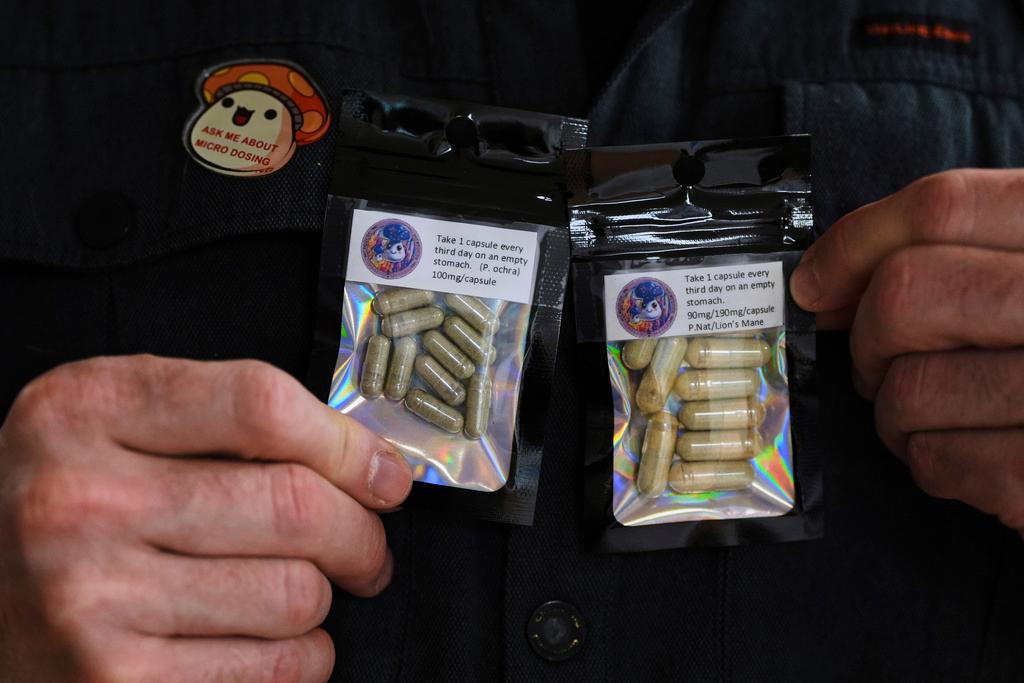
As calls to overhaul the criminal justice system continue to shape policing and state law in Colorado, that reform movement is having a quieter — yet forceful — impact on this fall’s district attorney races across the state.
There are three open, competitive district attorney races in the metro area: the judicial district for Adams and Broomfield counties, the district that covers Douglas and Arapahoe counties and the district for Jefferson and Gilpin counties.
In socially distanced gatherings, debates and Zoom fundraisers, candidates across the political spectrum in these races are promising to be a force for change: vowing more transparency, fewer drug prosecutions and more policies to get people out of jail and prisons.
Some of these calls for change come as outgoing DAs have faced condemnation among activists for not being tough enough on police officers who have killed people on the job.
In Adams County, for example, Dave Young, who is term-limited, has faced criticism and protests in Aurora for his decision not to charge any officers involved in the death of Elijah McClain last year. McClain was unarmed and not suspected of committing any crime when he was stopped by police. He later died after a struggle with officers.
“Now is a good time to get in there and work on the system and get reform,” said Tim McCormack, a Republican candidate for district attorney in Adams County, who touted that he has been endorsed by all of the police groups. “Law enforcement understands reform. I can work with these individuals.”
On a recent Saturday at a Thornton park, McCormack’s Democratic opponent, Brian Mason, stood next to two masked church leaders and also made a case for change.
“Part of how we make the criminal justice system better and more equitable is by looking for alternatives to incarceration when that’s appropriate,” said Mason, who currently has a leadership role in the Adams County DA’s office. ”I will say it proudly, Black lives matter. We, in the district attorney’s office, care about everyone, particularly those who have had a difficult background, particularly those who have been victimized, but we will also say that Black lives matter and we are committed to rooting out racism.”
From 'tough on crime' to diversion and rehabilitation
While past DA races might have focused on who would be tougher on crime, that argument is less prominent in the metro area races this year. Rather, diversion programs and specialty courts are big talking points in the races across the state for candidates in both parties.
Diversion programs usually mean that when someone with a mental illness or an addiction gets charged with a crime, they are shifted out of the criminal justice system into treatment or community service, especially if it’s a first-time offense. If the defendant fulfills the court’s requirement, criminal charges are dropped.
Specialty courts are similar — moving people from traditional court proceedings into “problem solving” courts that focus on the reason someone may have committed a crime. Criminal charges aren’t usually dropped, though rehabilitation is usually part of a sentence.
Juston Cooper, executive director of the Colorado Criminal Justice Reform Coalition’s advocacy arm, CCJRC4Action, is an advocate for “decarcerating” prisons in favor of alternatives in the criminal justice system. Cooper helped found the group, in part, because he was disappointed there weren’t more competitive DA races across the state four years ago.
“District attorneys are the gatekeepers to mass incarceration,” Cooper said. “The police accountability work has percolated to the top of people’s radar. Because of that, it’s elevated the profile of prosecutors and their role. But really prior to the uptick of the climate, there was no expectation that DAs be more transparent to the public around what their performance is, who they are or what they do.”
Currently, only seven of the 22 seats are competitive — and even among those races, not all are expected to be close.
In Denver, for example, current Democratic DA Beth McCann has a libertarian opponent, William F. Robinson III, who doesn’t have a website and said in a candidate survey that among his top priorities would be investigating cost overruns at DIA.
Protest movements have drawn more attention to DA races this year
Apryl Alexander, an associate professor of psychology at the University of Denver and a community organizer for Black Lives Matter 5280, said people are more interested in prosecutor races this year given the protest movement.
“The public is questioning our system,” Alexander said. “The system isn’t working. It’s not creating a system of justice and accountability, but I think this year more and more people are aware of that.”
Alexander said some of the common prosecutor candidate mantras have been flipped on their heads this year — thanks to the police accountability movement.
“DAs often have to prove they’re tough on crime and I think there are questions right now about ‘What does that mean?’” Alexander said. “What does that mean in the time of the Black Lives Matter movement? … I think more than ever before people are asking questions about prosecutorial bias.”
Amy Padden and John Kellner are running against each other to replace Republican George Brauchler in the 18th Judicial District — the state’s most populous district, covering 1.1 million people in Arapahoe, Douglas, Elbert and Lincoln counties. Brauchler is term-limited.
Padden, a Democrat, said she was inspired to enter the race because, “I cannot stand by when racism and systemic inequities continue in our criminal justice system.”
In a recent Facebook debate, Padden said she wants to greatly expand the office’s diversion programs — and offer rehabilitation when it’s warranted.
“Justice doesn’t mean ‘everyone the same,’ it means treating everyone fairly,” she said. “That does not exist in the 18th judicial district.”
Kellner, who has been a senior prosecutor in Brauchler’s office for eight years, pressed her for examples. He said they have an existing adult diversion program, but it’s not being used to capacity and he would fix that.
“I challenge my opponent to point out these cases where there is an allegation of over prosecution,” he said. “One of these things that gets overlooked is in Aurora, 15 percent of the population is Black, but they make up 33 to 35 percent of all violent crime victims … Talking about over prosecution detracts from that.”
Kellner said he wants to expand specialty courts because they have much lower recidivism rates — this includes a veteran’s court, a drug treatment court and a mental health treatment court.
In Jefferson County, both candidates also talk about reform — but in slightly different ways.
Republican Matthew Durkin, who works in the Jefferson County office now, said he is alarmed at the current crime rate and he wants to focus on prosecuting offenders — but he also wants to do more to ensure the people his office convicts don’t re-offend once they’re released. Statewide, the recidivism rate is roughly 50 percent.
Durkin also said he thinks the office should be more transparent about how it works.
“I think it’s an exciting time to be a district attorney right now. I think we do a great job,” he said. “But we have the opportunity to be engaged in these conversations a lot more than we had in the past … We should take this discussion to the community and raise greater awareness about what we do every day.”
His Democratic opponent, Alexis King, said she is also pushing for more transparency “to really get to that systemic race issue that I think is hurting the credibility of the criminal justice system.”
“With the death of George Floyd and the shift in the national conversation around the expectations of law enforcement, data collection seems so much more important than ever before,” she said. “I can say anecdotally I have sat in courtrooms where most of my caseload had Latino surnames, but I know who our population is in Jeffco and it’s disproportionate so we need to have that conversation … We shouldn’t operate behind a curtain.”









